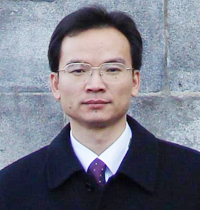China must strive to improve WTO rules
Updated: 2013-01-10 14:41
(China Daily)
|
||||||||
Exports | Tu Xinquan
When China joined the World Trade Organization in 2001, one of the frequently mentioned benefits was that China could get a better export conditions through using world trade rules to reduce disputes.
But this is far from the case.
By 2011, China was the most frequently targeted economy of anti-dumping investigations for 17 successive years. The country has been the subject of 52 anti-subsidy investigations since 2004, just one fewer than India's total for the past 17 years.
In addition, China is also a familiar defendant at the WTO Dispute Settlement Body - appearing 29 times since its accession to the organization, only behind the United States and the European Union by that measurement.
|
 Tu Xinquan |
Investments by Chinese businesses, especially State-owned ones, have been frequently blocked over "national security" concerns in developed markets such as the US as well as in developing economies in Africa and Latin America.
What are the real reasons for this trade friction?
We first need to be clear that this situation has not fundamentally affected China's trade and economic growth.
Its exports increased almost five times from $325.6 billion in 2002 to $1.9 trillion in 2011, which showed that trade disputes did not have a significant effect on the country's growing foreign trade.
It is unnecessary to exaggerate the effects of trade disputes and obsure our judgment of the global and domestic situation.
The current rules, established in the early 1990s, result from then common economic patterns and ideas, and favor developed economies. China had to accept the rules as a rising exporter and was thus placed in an unfavorable position from the very outset.
It is true that China is still subject to reform and improvement. We need to reflect the rationality and effectiveness of our moves while striving for the best results in trade disputes under the WTO Dispute Settlement Body.
As for international trade rules, it is necessary to abide by them, even when they are defective, before trying to improve them.
Trade disputes with China are now widening and affecting more industries, and they are more frequently targeted at China's economic policies, structure and even system. The trend, if not controlled, will increase domestic enterprises' difficulties in overseas markets, and affect China's credibility and influence in global governance.
We have to take a strategic approach toward such disputes.
First, resolving trade disputes relies on using and improving international rules.
China should advocate the improvement of these rules, and promote trade and investment liberalization while respecting the needs of developing economies.
China should be a more active player in the establishment of rules. Therefore, we should be geared up for further opening up of the market, which will give us more bargaining power.
Second, our biggest advantage is not being the top exporter but our position as the world's second-largest importer and biggest recipient of foreign direct investment. We can follow suit in using rule defects and loopholes to overcome trade and investment protectionist measures against China rather than encouraging these actions.
Third, China should improve its handling of trade disputes, and the most important step it can take in this regard is to continue with reform and opening-up and to stick to the market economy.
A greater similarity in economic structure and a deeper inter-dependence in mutual markets will reduce trade disputes between China and its partners.
The author is deputy director of the China Institute for WTO Studies at the University of International Business and Economics in Beijing.

 Li Na on Time cover, makes influential 100 list
Li Na on Time cover, makes influential 100 list
 FBI releases photos of 2 Boston bombings suspects
FBI releases photos of 2 Boston bombings suspects
 World's wackiest hairstyles
World's wackiest hairstyles
 Sandstorms strike Northwest China
Sandstorms strike Northwest China
 Never-seen photos of Madonna on display
Never-seen photos of Madonna on display
 H7N9 outbreak linked to waterfowl migration
H7N9 outbreak linked to waterfowl migration
 Dozens feared dead in Texas plant blast
Dozens feared dead in Texas plant blast
 Venezuelan court rules out manual votes counting
Venezuelan court rules out manual votes counting
Most Viewed
Editor's Picks

|

|

|

|

|

|
Today's Top News
Boston bombing suspect reported cornered on boat
7.0-magnitude quake hits Sichuan
Cross-talk artist helps to spread the word
'Green' awareness levels drop in Beijing
Palace Museum spruces up
First couple on Time's list of most influential
H7N9 flu transmission studied
Trading channels 'need to broaden'
US Weekly

|

|







